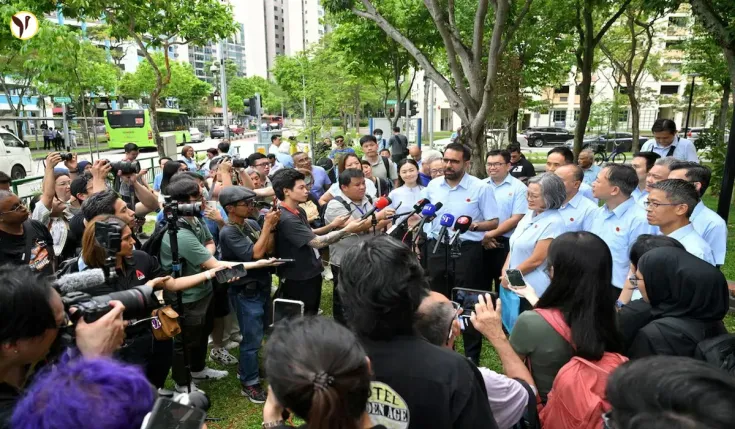GE2025: Marine Parade GRC Walkover and its Ripple Effects
Singapore's General Election 2025 (GE2025) witnessed an unexpected turn of events in Marine Parade-Braddell Heights GRC: a walkover for the People's Action Party (PAP). This was the first uncontested win in a GRC since 2011, sparking debate and criticism among opposition parties. The Workers' Party (WP), who had contested the area strongly in previous elections, ultimately decided against fielding candidates, leaving the PAP's five-member team – including Speaker of Parliament Seah Kian Peng and Minister of State Faishal Ibrahim – to take the seats unopposed.
Opposition Reactions and the Tampines GRC Showdown
The decision left other opposition parties feeling blindsided and disappointed. The Progress Singapore Party (PSP) and the Singapore Democratic Party (SDP) voiced their concern over the lack of electoral competition, emphasizing the importance of giving voters a choice. The walkover fueled accusations against the WP, particularly from the People's Power Party (PPP), for strategically abandoning a well-contested constituency to participate in a four-cornered fight in Tampines GRC, where they will contest alongside the PAP, PPP, and the National Solidarity Party (NSP).
Strategic Choices and Resource Allocation
WP Secretary-General Pritam Singh defended the party's decision, citing resource constraints and the need to focus efforts on constituencies where they believe they have a better chance of success. This strategic move, although controversial, highlights the challenges faced by smaller opposition parties in a resource-intensive election campaign. The redrawing of electoral boundaries following the Electoral Boundaries Review Committee's recommendations also played a significant role in influencing this decision. The PAP meanwhile, adjusted its candidate line-up, with notable changes in Chua Chu Kang and Punggol GRCs.
Tampines GRC: A Key Battleground
The intense competition in Tampines GRC, featuring the PAP team led by Minister Masagos Zulkifli, now stands as a critical focal point of GE2025. The four-way race brings increased scrutiny to the PAP's performance in a constituency with a significant Malay-Muslim population, potentially placing community concerns at the forefront of the campaign. The PAP team includes established figures like Koh Poh Koon and Baey Yam Keng, alongside newcomers David Neo and Charlene Chen.
Conclusion: A Shifting Political Landscape
The Marine Parade GRC walkover underscores the evolving dynamics of Singaporean politics. While the PAP secured an uncontested victory, the controversy surrounding the WP's decision, and the ensuing multi-cornered fight in Tampines, demonstrate the continuing strategic maneuvering and resource allocation challenges for both the ruling party and the opposition. The GE2025 results will be crucial in determining the longer-term impact of these decisions on the political landscape.






